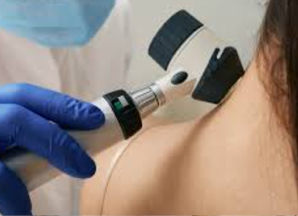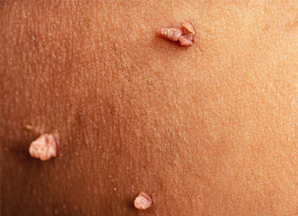hepatitis B Testing Dubai
What is Hepatitis B? Hepatitis B Testing Dubai
Key facts
- Hepatitis B is a viral infection that attacks the liver and can cause both acute and chronic disease.
- The virus is transmitted through contact with the blood or other body fluids of an infected person.
- An estimated 240 million people are chronically infected with hepatitis B (defined as hepatitis B surface antigen positive for at least 6 months).
- More than 780 000 people die every year due to complications of hepatitis B, including cirrhosis and liver cancer1.
- Hepatitis B is an important occupational hazard for health workers.
- However, it can be prevented by currently available safe and effective vaccine.
Hepatitis B is a potentially life-threatening liver infection caused by the hepatitis B virus. It is a major global health problem. It can cause chronic infection and puts people at high risk of death from cirrhosis and liver cancer.
A vaccine against hepatitis B has been available since 1982. The vaccine is 95% effective in preventing infection and the development of chronic disease and liver cancer due to hepatitis B.
Geographical distribution
Hepatitis B prevalence is highest in sub-Saharan Africa and East Asia, where between 5–10% of the adult population is chronically infected. High rates of chronic infections are also found in the Amazon and the southern parts of eastern and central Europe. In the Middle East and the Indian subcontinent, an estimated 2–5% of the general population is chronically infected. Less than 1% of the population in Western Europe and North America is chronically infected.
Transmission
The hepatitis B virus can survive outside the body for at least 7 days. During this time, the virus can still cause infection if it enters the body of a person who is not protected by the vaccine. The incubation period of the hepatitis B virus is 75 days on average, but can vary from 30 to 180 days. The virus may be detected within 30 to 60 days after infection and can persist and develop into chronic hepatitis B.
In highly endemic areas, hepatitis B is most commonly spread from mother to child at birth (perinatal transmission), or through horizontal transmission (exposure to infected blood), especially from an infected child to an uninfected child during the first 5 years of life. The development of chronic infection is very common in infants infected from their mothers or before the age of 5 years.
Hepatitis B is also spread by percutaneous or mucosal exposure to infected blood and various body fluids, as well as through saliva, menstrual, vaginal, and seminal fluids. Sexual transmission of hepatitis B may occur, particularly in unvaccinated men who have sex with men and heterosexual persons with multiple sex partners or contact with sex workers. Infection in adulthood leads to chronic hepatitis in less than 5% of cases. Transmission of the virus may also occur through the reuse of needles and syringes either in health-care settings or among persons who inject drugs. In addition, infection can occur during medical, surgical and dental procedures, tattooing, or through the use of razors and similar objects that are contaminated with infected blood.
Symptoms
Most people do not experience any symptoms during the acute infection phase. However, some people have acute illness with symptoms that last several weeks, including yellowing of the skin and eyes (jaundice), dark urine, extreme fatigue, nausea, vomiting and abdominal pain. A small subset of persons with acute hepatitis can develop acute liver failure which can lead to death.
In some people, the hepatitis B virus can also cause a chronic liver infection that can later develop into cirrhosis of the liver or liver cancer.
More than 90% of healthy adults who are infected with the hepatitis B virus will recover naturally from the virus within the first year.
Who is at risk for chronic disease?
The likelihood that infection with the virus becomes chronic depends upon the age at which a person becomes infected. Children less than 6 years of age who become infected with the hepatitis B virus are the most likely to develop chronic infections.
In infants and children:
- 80–90% of infants infected during the first year of life develop chronic infections;
- 30–50% of children infected before the age of 6 years develop chronic infections.
In adults:
- <5% of otherwise healthy persons who are infected as adults will develop chronic infection;
- 20–30% of adults who are chronically infected will develop cirrhosis and/or liver cancer.
Diagnosis
It is not possible, on clinical grounds, to differentiate hepatitis B from hepatitis caused by other viral agents and, hence, laboratory confirmation of the diagnosis is essential. A number of blood tests are available to diagnose and monitor people with hepatitis B. They can be used to distinguish acute and chronic infections.
Laboratory diagnosis of hepatitis B infection focuses on the detection of the hepatitis B surface antigen HBsAg. WHO recommends that all blood donations are tested for hepatitis B to ensure blood safety and avoid accidental transmission to people who receive blood products.
- Acute HBV infection is characterized by the presence of HBsAg and immunoglobulin M (IgM) antibody to the core antigen, HBcAg. During the initial phase of infection, patients are also seropositive for hepatitis B e antigen (HBeAg). HBeAg is usually a marker of high levels of replication of the virus. The presence of HBeAg indicates that the blood and body fluids of the infected individual are highly contagious.
- Chronic infection is characterized by the persistence of HBsAg for at least 6 months (with or without concurrent HBeAg). Persistence of HBsAg is the principal marker of risk for developing chronic liver disease and liver cancer (hepatocellular carcinoma) later in life.
Treatment
There is no specific treatment for acute hepatitis B. Therefore, care is aimed at maintaining comfort and adequate nutritional balance, including replacement of fluids lost from vomiting and diarrhoea. Chronic hepatitis B infection can be treated with drugs, including oral antiviral agents. Treatment can slow the progression of cirrhosis, reduce incidence of liver cancer and improve long term survival.
WHO recommends the use of oral treatments - tenofovir or entecavir, because these are the most potent drugs to suppress hepatitis B virus. They rarely lead to drug resistance as compared with other drugs, are simple to take (1 pill a day), and have few side effects so require only limited monitoring.
However, in most people, the treatment does not cure hepatitis B infection, but only suppresses the replication of the virus. Therefore, most people who start hepatitis B treatment must continue it for life.
Treatment using interferon injections may be considered in some people in certain high-income settings, but its use is less feasible in low-resource settings due to high cost and significant adverse effects requiring careful monitoring.
There is still limited access to diagnosis and treatment of hepatitis B in many resource-constrained settings, and many people are diagnosed only when they already have advanced liver disease. Liver cancer progresses rapidly, and since treatment options are limited, the outcome is in general poor. In low-income settings, most people with liver cancer die within months of diagnosis. In high-income countries, surgery and chemotherapy can prolong life for up to a few years. In high-income countries, liver transplantation is sometimes used in people with cirrhosis, with varying success.
Prevention
The hepatitis B vaccine is the mainstay of hepatitis B prevention. WHO recommends that all infants receive the hepatitis B vaccine as soon as possible after birth, preferably within 24 hours. The birth dose should be followed by 2 or 3 doses to complete the primary series. In most cases, one of the following two options is considered appropriate:
- a 3-dose schedule of hepatitis B vaccine, with the first dose (monovalent) being given at birth and the second and third (monovalent or combined vaccine) given at the same time as the first and third doses of diphtheria, pertussis (whooping cough), and tetanus – (DTP) vaccine; or
- 4 doses, where a monovalent birth dose is followed by three monovalent or combined vaccine doses, usually given with other routine infant vaccines.
The complete vaccine series induces protective antibody levels in more than 95% of infants, children and young adults. Protection lasts at least 20 years and is probably lifelong. Thus, WHO does not recommend booster vaccination for persons who have completed the 3 dose vaccination schedule.
All children and adolescents younger than 18 years-old and not previously vaccinated should receive the vaccine if they live in countries where there is low or intermediate endemicity. In those settings it is possible that more people in high-risk groups may acquire the infection and they should also be vaccinated. They include:
- people who frequently require blood or blood products, dialysis patients, recipients of solid organ transplantations;
- people interned in prisons;
- persons who inject drugs;
- household and sexual contacts of people with chronic HBV infection;
- people with multiple sexual partners;
- health-care workers and others who may be exposed to blood and blood products through their work; and
- travellers who have not completed their hepatitis B vaccination series, who should be offered the vaccine before leaving for endemic areas.
The vaccine has an excellent record of safety and effectiveness. Since 1982, over 1 billion doses of hepatitis B vaccine have been used worldwide. In many countries where 8–15% of children used to become chronically infected with the hepatitis B virus, vaccination has reduced the rate of chronic infection to less than 1% among immunized children.
As of 2013, 183 Member States vaccinate infants against hepatitis B as part of their vaccination schedules and 81% of children received the hepatitis B vaccine. This is a major increase compared with 31 countries in 1992, the year that the World Health Assembly passed a resolution to recommend global vaccination against hepatitis B. Furthermore, as of 2013, 93 Member States have introduced the hepatitis B birth dose vaccine.
In addition, implementing of blood safety strategies, including quality-assured screening of all donated blood and blood components used for transfusion, can prevent transmission of HBV. Safe injection practices, eliminating unnecessary and unsafe injections, can be effective strategies to protect against HBV transmission. Furthermore, safer sex practices, including minimizing the number of partners and using barrier protective measures (condoms), also protect against transmission.
WHO response
In March 2015, WHO launched its first "Guidelines for the prevention, care and treatment of persons living with chronic hepatitis B infection". The recommendations:
- promote the use of simple, non-invasive diagnostic tests to assess the stage of liver disease and eligibility for treatment;
- prioritize treatment for those with most advanced liver disease and at greatest risk of mortality; and
- recommend the preferred use of the nucleos(t)ide analogues with a high barrier to drug resistance (tenofovir and entecavir, and entecavir in children aged 2–11 years) for first- and second-line treatment.
These guidelines also recommend lifelong treatment in those with cirrhosis; and regular monitoring for disease progression, toxicity of drugs and early detection of liver cancer.
WHO is working in the following areas to prevent and control viral hepatitis:
- raising awareness, promoting partnerships;
- formulating evidence-based policy and data for action;
- promoting prevention of transmission through vaccination, safe injection practices and blood safety; and
- promoting wider access to monitoring and screening, care and treatment services for hepatitis B.
WHO also organizes World Hepatitis Day on July 28 every year to increase awareness and understanding of viral hepatitis.
If you're worried you may have an STD? Please call +971 4 379 8747.
Common STDs include HIV Type 1, Herpes 1 & 2, Hepatitis A, B & C, Syphilis, chlamydia, genital warts and gonorrhoea- and the sooner an STI is treated, the less long term damage will be caused.







